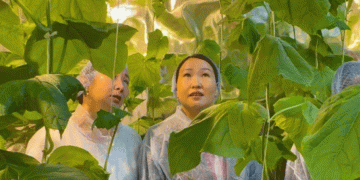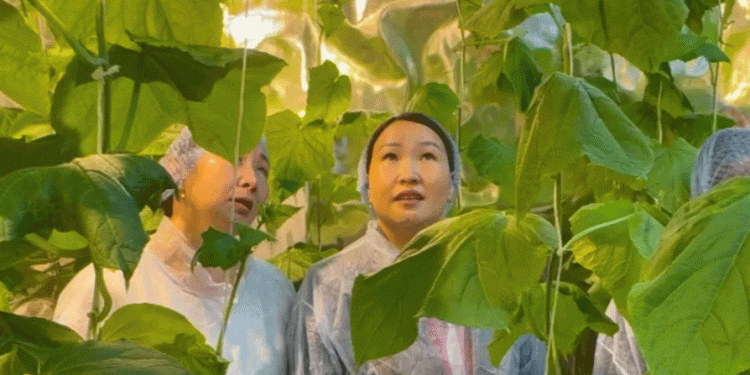In the Megino-Kangalassky District of Yakutia (Sakha Republic), a school has taken a bold step into the future of agriculture. Mattinskaya Secondary School has unveiled an 18-square-meter automated greenhouse, designed to grow fresh vegetables year-round—even as temperatures outside plunge below -50°C (-58°F). This project, part of the school’s “Smart Garden” initiative, demonstrates how cutting-edge agritech can overcome the challenges of farming in the Arctic.
High-Tech Farming in the World’s Coldest Inhabited Region
The greenhouse is equipped with:
- Climate control sensors (monitoring temperature, humidity, and CO₂ levels)
- Automated drip irrigation with timed watering
- Energy-efficient sodium lamps for optimal growth with minimal power use
- Remote video monitoring for real-time plant supervision
Currently, the system supports 75 plants, with an expected annual yield of 1,500 kg of organic vegetables. The first harvest—16 fresh cucumbers—has already proven the concept’s viability.
A New Model for Arctic Agriculture and Education
The project, supported by Yakutia’s Ministry of Agriculture and the Arctic State Agrotechnological University (AGATU), serves two key purposes:
- Sustainable food production in a region where fresh produce is scarce and expensive.
- Hands-on STEM education, preparing students for careers in agroengineering, biotechnology, and smart farming.
Sakhayana Pavlova, Deputy Minister of Agriculture for the Sakha Republic, emphasized:
“Students mastering these technologies today will become tomorrow’s experts in Yakutia’s agribusiness sector.”
Dr. Yuri Dondokov (AGATU) added that the biggest advantage is “year-round cultivation, independent of Yakutia’s extreme winters, while giving students practical agrotech experience.”
Expanding the Vision: An Agri-Tech School Program
The success of the “Smart Garden” has led to plans for an “Agroengineering Class” in the 2024–2025 academic year. Students will study:
- Precision agriculture (automated systems, IoT sensors)
- Biotechnology (hydroponics, plant genetics)
- Renewable energy integration (solar/wind-powered greenhouses)
A Blueprint for Cold-Climate Farming?
Yakutia’s “Smart Garden” proves that even the harshest environments can adopt sustainable farming with the right technology. For farmers, agronomists, and policymakers, this project highlights:
- The potential of automation in extreme climates
- The role of education in future-proofing agriculture
- A scalable model for remote and Arctic communities
As climate change and food security challenges grow, such innovations could redefine Arctic agriculture—turning frozen landscapes into productive green zones.































